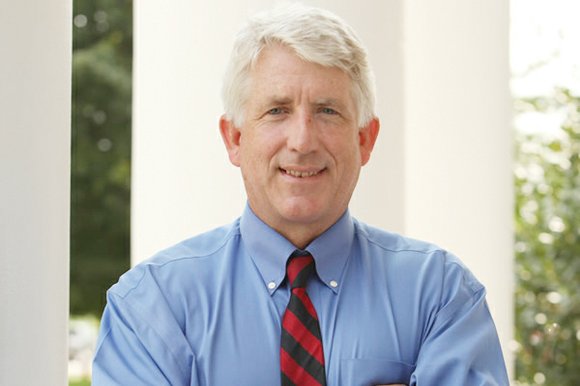Attorney general urges court to uphold mass restoration of felons’ voting rights
7/8/2016, 4:35 p.m.
Virginia Attorney General Mark Herring is urging the Virginia Supreme Court to reject a Republican legal challenge to Gov. Terry McAuliffe’s use of executive power to restore voting and other political rights to more than 200,000 felons.
This state’s highest court is to hear arguments on the issue July 19.
In a filing Monday with the court, Mr. Herring submitted a multipronged argument for dismissal of the GOP lawsuit.
First, Mr. Herring sought to show the governor has unfettered power under the Virginia Constitution to restore voting rights en masse, an authority that “may not be controlled or restricted by either the legislative branch or the judicial branch.” He wrote that authority has been in place since at least the 1870 Virginia Constitution, even if every other governor has ignored the authority and restored rights on a case-by-case basis.
Second, the attorney general noted that the six plaintiffs, who include House Speaker William J. Howell of Fredericksburg, Senate Majority Leader Thomas K. Norment Jr. of Williamsburg and four voters, cannot show they personally have suffered the kind of “concrete or particularized injury” required to bring such a suit. A general grievance or disagreement with the governor’s action is not enough, Mr. Herring stated.
Third, the attorney general argued that the court’s own precedents would bar it from issuing the kind of extraordinary orders that the petitioners are requesting to roll back the governor’s actions and bar him from further restoring rights other than on a case-by-case basis.
Fourth, the attorney general noted that, as it has done past cases, the court must presume the governor’s actions are valid and should adopt a position that “upholds the governor’s actions, not one that would invalidate them.”
And fifth, the attorney general stated that, if the court grants relief, it could allow the governor to use his authority to issue case-by-case restoration of rights to all of the affected individuals.
“Petitioners challenge only his method of restoring political rights, not his power to restore them,” Mr. Herring noted.
The court also received briefs in support of the governor’s position from the Virginia State Conference of the NAACP; the American Civil Liberties Union; the Fair Elections Legal Network; Bridging the Gap in Virginia; Virginia’s New Majority; Michael N. Herring and Shannon Taylor, the commonwealth’s attorneys in Richmond and Henrico County, respectively; and commonwealth’s attorneys from four other Virginia cities.
In addition, University of Virginia law professor A.E. Dick Howard, a recognized legal expert on the Virginia Constitution, and three other professors, backed the governor.
This is a major shift for Mr. Howard, who in a 1974 commentary on the 1971 Constitution, wrote that the governor could restore rights only on a case-by-case basis.







